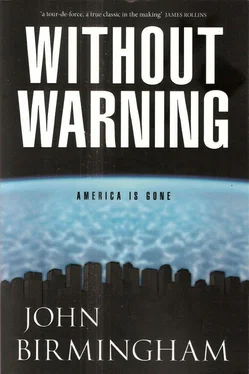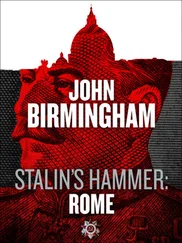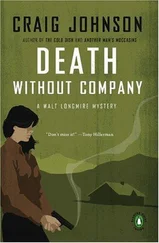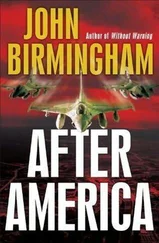John Birmingham - Without warning
Здесь есть возможность читать онлайн «John Birmingham - Without warning» весь текст электронной книги совершенно бесплатно (целиком полную версию без сокращений). В некоторых случаях можно слушать аудио, скачать через торрент в формате fb2 и присутствует краткое содержание. Жанр: Триллер, на английском языке. Описание произведения, (предисловие) а так же отзывы посетителей доступны на портале библиотеки ЛибКат.
- Название:Without warning
- Автор:
- Жанр:
- Год:неизвестен
- ISBN:нет данных
- Рейтинг книги:4 / 5. Голосов: 1
-
Избранное:Добавить в избранное
- Отзывы:
-
Ваша оценка:
- 80
- 1
- 2
- 3
- 4
- 5
Without warning: краткое содержание, описание и аннотация
Предлагаем к чтению аннотацию, описание, краткое содержание или предисловие (зависит от того, что написал сам автор книги «Without warning»). Если вы не нашли необходимую информацию о книге — напишите в комментариях, мы постараемся отыскать её.
Without warning — читать онлайн бесплатно полную книгу (весь текст) целиком
Ниже представлен текст книги, разбитый по страницам. Система сохранения места последней прочитанной страницы, позволяет с удобством читать онлайн бесплатно книгу «Without warning», без необходимости каждый раз заново искать на чём Вы остановились. Поставьте закладку, и сможете в любой момент перейти на страницу, на которой закончили чтение.
Интервал:
Закладка:
‘Excellent,’ beamed Milosz. ‘It is good to talk like this, Melton. So much of soldiering is crudity and ugliness, yes? But there is more to the profession of arms, and to life itself. We soldier so our children won’t. For us, guns; for them, books and easier lives.’
Melton gestured helplessly. ‘I never had any kids. Gotta say I’m real happy about that now.’
He didn’t look back over at the Marine lance corporal as he spoke. She was still talking about her daughter in North Dakota. Someone came over, checked the man on the cot, took his pulse. The orderly then pulled a blanket over the man’s head and made a note on the clipboard, but the lance corporal didn’t notice.
‘But if I had,’ he continued, ‘and they hadn’t disappeared, I don’t know that they’d be looking at an easier life than I had.’
‘Not now, no,’ conceded the Pole.
Three trucks pulled up at the vast hangar bay doors and soon able-bodied troopers began unloading more litters from their rear cabins. Corpsmen and a few nurses appeared and hurried over to help, but otherwise there was no appreciable reaction to their arrival. Men still sat and talked in low voices in their own small, closed groups. Country-and-western crooners still clashed with speed-metal shrieks and hardcore rap from dozens of portable stereos. Listless card games of hearts and spades continued without pause. The bleep-blee-bloop of Game Boy systems never faltered.
‘And what now for you guys, Sergeant? Home to your families?’
Milosz nodded, but there was a severity to his expression that belied any sense of release or deliverance. A couple of the other Poles appeared just as sombre.
‘Home, yes. We hope.’ He waved his hands in the air, a concession of helplessness. ‘If we have not been forgotten. Or abandoned. Or lost… But we may not see our families even if we do get home. There will be much work to be done. Our sort of work.’
‘Fighting.’
‘Of course. You have seen what happens when things go bad, Melton. In Polish history, there is much fighting – Russians, Germans. Who knows who will come now? Maybe Tartars and Ottomans again. Once, even the Swedes invaded. I doubt they would again. They are a soft people now. But not everyone is soft, no? The jihadi pigs I am fighting in Afghanistan, they are crazy men, but hard. The Iraqis – not so hard, but bad, and led badly. Weak men are often the cruellest. And Russia, a sick place, but still peopled with ruthless commissars and tyrants. This Putin, watch him. He is an iron fist hanging over all of us.
‘So yes, Melton, fighting. Always fighting. Fighting big, between states, and small, between people for little things. Food, water – basic things. My brother, I spoke to him for three minutes on American phone yesterday. Nothing he has to eat for two days. Just some dried crackers and a little tinned food for his children. Nothing in market. It is like communism again. And now, with the poison clouds, no harvests, I think.’
His men were nodding, and Melton wondered about their grasp of English. If he recalled correctly, GROM operators had to have a working knowledge of at least two languages other than Polish. He supposed there was a fair chance all of these men did speak English with some fluency, given the anglophone nature of the Coalition. And doubtless this was a topic that had been chewed down to the gristle among them. He wished he had taken notes, or recorded the sergeant’s lament. He was sure he could sell a story based solely on snatches of interviews taken with the men in this hangar, or with those men and women with whom he’d travelled to get here. An old, nearly burnt-out spark flickered somewhere inside him and he reached inside his jacket pocket, searching for the Sony digital recorder he kept there. It was gone, but he had a pen and a notebook that he had lifted off someone’s desk over the course of his journey from Kuwait. His writing hand was uninjured, but holding the pad in his heavily bandaged left hand was awkward.
He looked at the lance corporal by the Arabic Coke machine. Don’t end up like her, he swore to himself.
Melton raised an eyebrow at Milosz and asked, ‘Would you mind? I don’t have any of my gear. My newspaper is gone, but I’m still a reporter. I shouldn’t be sitting here on my ass feeling sorry for myself – I should be telling stories. Your stories. Would you mind?’
‘Of course not!’ the sergeant cried out, holding his arms wide. ‘I am always interesting in hearing myself talk. And these, my poor little bastards, they have no choice – they have to listen. Why should they suffer alone? Yes, Melton, of course you can tell my stories. Where should I start? With our attack on the Mukarayin Dam? Yes, that was us. We flooded Baghdad. Everyone thinks it was Green Berets, pah, Hollywood pussies! It was GROM.’
Melton couldn’t help glancing around to see if any Army Special Forces were around to hear that remark. If they were and heard, they didn’t make themselves known.
Still struggling with his pen and paper, Melton came up short. The Polish special forces were not an old and venerable outfit. They had only been established in 1991. But they already had a rep as a very closed-up shop. You rarely heard about them, and they never did press. Yet here was one of the senior enlisted men, suddenly happy to give up details of a mission that he would have denied even happened a week or so back.
Milosz had no trouble translating the American’s puzzled look. ‘Do not be surprised, Melton,’ he said. ‘Everything has changed now. I will tell you about Mukarayin because it suits our purposes.’
‘How so?’
‘It is like I said – there will be much more evil in the world soon. There is already, yes? My country, she has suffered more than most through her history. But not this time. Or not without making others suffer for what they might do to us. I will tell you about Mukarayin because you will tell the world, and then she will know that we Poles, we will not be ploughed under again. You know what most people see when they imagine Polish Army? They see horsemen galloping off to charge Hitler’s tanks. Brave, but stupid, and doomed. But now, if you tell them about Mukarayin, in future when people think about Polish fighting man, they maybe think about that dam blowing high into sky and that mountain of water flooding out and drowning city of Baghdad. They will think twice about wishing evil upon us, yes?’
‘Yes,’ agreed Melton. ‘I think they will’
It was more than he had imagined writing about. He’d been more interested in Milosz’s story of calling home and talking to his brother, of being trapped in the broken machinery of a vast war machine, suddenly cut off and alone in a hostile world. And he did do that interview, but he also filled half of his notebook with stories from every man in the sergeant’s extended squad – GROM usually operated in teams of four – about blowing the dam that flooded Baghdad.
As he did so, the strangest thing happened. A small audience began to gather around them – just two passing Cav troopers at first, but increasingly building up into a circle of attentive listeners that drew in even more men and women by virtue of its novelty. After ten minutes Melton was sure that over two hundred people surrounded them, perhaps the majority of the walking wounded in the hangar space. The Polish operators spoke into a rapt silence, but occasionally someone would call out, confirming a detail of their story, or others would clap and cheer like believers at a revival meeting.
The specialist from the 101st Airborne stood over him, his fist full of dog tags, his eyes clear now. ‘Sir?’
‘Yes, Specialist?’
‘Can I… Would it be okay if I told you…?’ The soldier held up the identity discs. There must have been twenty or more of the tags, some with blood and skin on them.
Читать дальшеИнтервал:
Закладка:
Похожие книги на «Without warning»
Представляем Вашему вниманию похожие книги на «Without warning» списком для выбора. Мы отобрали схожую по названию и смыслу литературу в надежде предоставить читателям больше вариантов отыскать новые, интересные, ещё непрочитанные произведения.
Обсуждение, отзывы о книге «Without warning» и просто собственные мнения читателей. Оставьте ваши комментарии, напишите, что Вы думаете о произведении, его смысле или главных героях. Укажите что конкретно понравилось, а что нет, и почему Вы так считаете.












